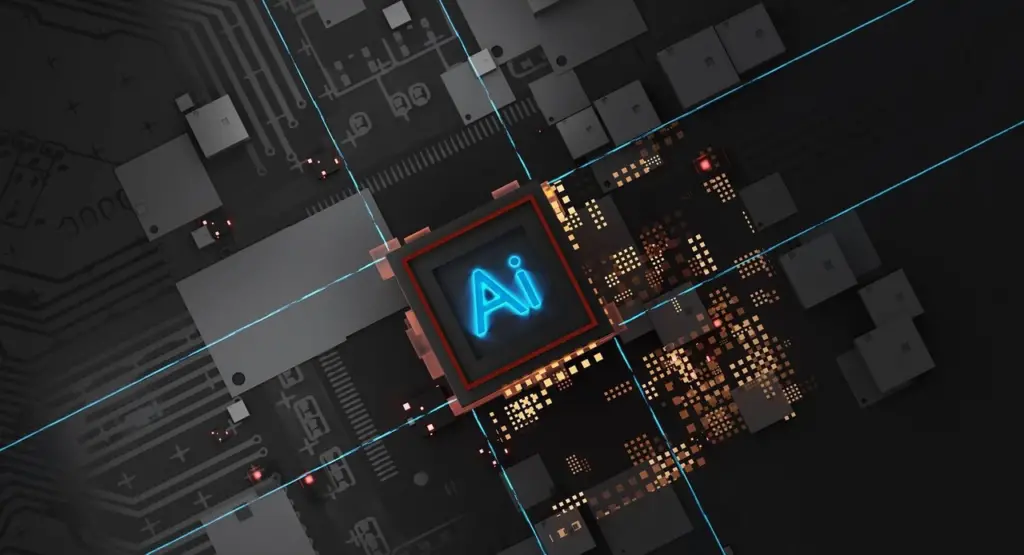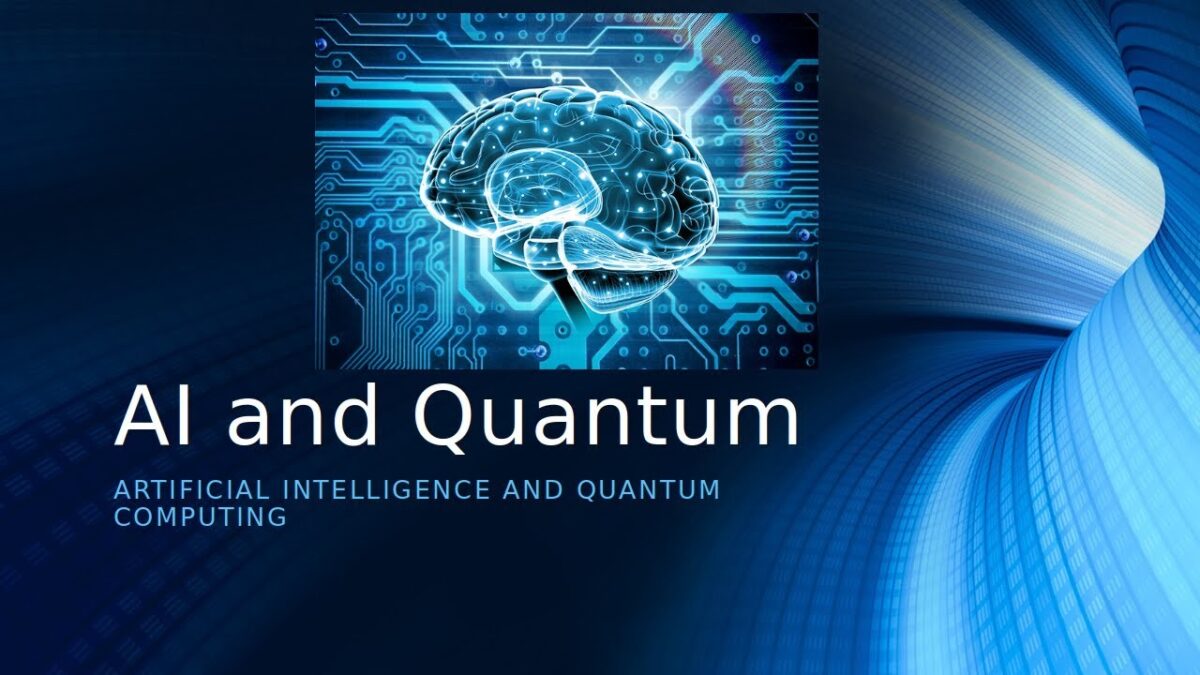Artificial Intelligence (AI) and Quantum Computing stand out as two of the most disruptive forces transforming industry and society in the continuously changing technological landscape. Despite the fact that both topics have received a lot of attention, they are complementary despite having different natures, applications, and ramifications. This blog post explores the complexities of quantum technologies and artificial intelligence (AI), comparing their roles, highlighting their significance and applicability in diverse domains, and weighing their pros and cons.

Understanding AI and Quantum Technologies
Artificial Intelligence (AI)
Artificial Intelligence encompasses a broad range of technologies designed to simulate human intelligence and perform tasks that typically require human cognition. This includes machine learning (ML), natural language processing (NLP), robotics, and computer vision. AI systems learn from data, adapt to new inputs, and perform complex tasks that range from image recognition to language translation.
Key Components of AI:
- Machine Learning (ML): Algorithms that improve through experience. Techniques include supervised learning, unsupervised learning, and reinforcement learning.
- Natural Language Processing (NLP): Enables machines to understand and respond to human language.
- Computer Vision: Allows machines to interpret and process visual information.
- Robotics: Involves the design and use of robots for various tasks, often enhanced by AI.
Quantum Technologies
Quantum Technologies leverage principles of quantum mechanics to process information in fundamentally different ways compared to classical systems. The primary component is the quantum computer, which uses qubits (quantum bits) instead of classical bits to perform computations. Quantum technologies also include quantum communication, quantum cryptography, and quantum sensing.
Key Components of Quantum Technologies:
- Quantum Computing: Uses quantum bits (qubits) to perform complex calculations at speeds unattainable by classical computers.
- Quantum Communication: Uses quantum entanglement to securely transmit information.
- Cryptography: Provides secure encryption methods based on quantum principles.
- Quantum Sensing: Enhances measurement precision using quantum properties.

Importance and Usefulness in Different Fields
AI Applications Across Industries
- Healthcare:
- Diagnostics and Personalized Medicine: AI algorithms analyze medical images and patient data to identify diseases, predict outcomes, and suggest personalized treatment plans.
- Drug Discovery: Machine learning models accelerate drug discovery by predicting molecular interactions and optimizing compounds.
- Finance:
- Algorithmic Trading: AI-driven algorithms execute trades based on real-time data and predictive models.
- Fraud Detection: Machine learning detects unusual patterns and potential fraudulent activities in financial transactions.
- Retail:
- Customer Experience: AI chatbots and recommendation systems enhance customer service and personalization.
- Supply Chain Optimization: AI models forecast demand, optimize inventory management, and streamline logistics.
- Transportation:
- Autonomous Vehicles: AI enables self-driving cars to navigate and make real-time decisions based on sensor data.
- Traffic Management: AI systems optimize traffic flow and reduce congestion through data analysis and predictive modeling.
- Education:
- Personalized Learning: AI-driven platforms provide customized learning experiences and adaptive content based on individual student needs.
- Administrative Efficiency: AI automates administrative tasks such as grading and scheduling.

Quantum Technologies and Their Potential Impact
- Pharmaceuticals:
- Drug Discovery: Quantum computing can simulate complex molecular interactions with high precision, accelerating drug development.
- Cryptography:
- Secure Communication: Quantum cryptography ensures secure data transmission by leveraging quantum entanglement and uncertainty principles.
- Material Science:
- New Materials: Quantum simulations can predict the properties of new materials, leading to innovations in electronics, energy storage, and more.
- Optimization Problems:
- Complex Optimization: Quantum computing addresses optimization problems in logistics, finance, and resource management that are computationally intensive for classical systems.
- Climate Modeling:
- Accurate Simulations: Quantum computing can enhance climate models by simulating complex interactions in the Earth’s climate system.
Advantages and Disadvantages of AI
Advantages
- Automation of Routine Tasks:
- AI automates repetitive tasks, increasing efficiency and freeing up human resources for more complex work.
- Data Analysis and Insights:
- AI processes vast amounts of data quickly, providing valuable insights and supporting data-driven decision-making.
- Scalability:
- AI systems can scale across various applications and industries, adapting to different needs and contexts.
- 24/7 Operation:
- Unlike humans, AI systems can operate continuously without fatigue, ensuring consistent performance and reliability.
- Improved Accuracy:
- AI models, particularly in areas like medical diagnostics and image recognition, offer high levels of accuracy and precision.
Disadvantages
- Bias and Fairness:
- AI systems can perpetuate and even amplify existing biases in data, leading to unfair outcomes and discrimination.
- Privacy Concerns:
- AI applications, particularly those involving personal data, raise significant privacy and security issues.
- Job Displacement:
- Automation driven by AI can lead to job losses in certain sectors, necessitating workforce retraining and adaptation.
- Complexity and Explainability:
- Many AI models, especially deep learning systems, operate as “black boxes,” making it difficult to understand their decision-making processes.
- Dependence on Data:
- AI systems rely heavily on high-quality data. Poor data quality or inadequate data can lead to unreliable results and ineffective models.

Advantages and Disadvantages of Quantum Technologies
Advantages
- Exponential Speedup:
- Quantum computers have the potential to solve certain problems exponentially faster than classical computers, such as factoring large numbers and optimizing complex systems.
- Enhanced Security:
- Quantum cryptography offers unprecedented levels of security for data transmission, leveraging principles like quantum key distribution.
- Complex Problem Solving:
- Quantum computing can tackle problems intractable for classical computers, including certain types of simulations and optimization challenges.
- Breakthrough Discoveries:
- Quantum simulations can lead to breakthroughs in material science, pharmaceuticals, and other fields by accurately modeling complex quantum systems.
- Novel Algorithms:
- Quantum computing introduces new algorithms that can revolutionize fields such as machine learning and optimization.
Disadvantages
- Technical Challenges:
- Building and maintaining quantum computers is highly complex and requires precise control of quantum states, which is still a significant challenge.
- Limited Applicability:
- Quantum computing is not universally applicable and may not offer advantages for all types of problems, especially those that are well-suited to classical computing.
- Cost and Resources:
- The development of quantum technologies is resource-intensive and expensive, requiring substantial investment and infrastructure.
- Cryptographic Risks:
- While quantum cryptography offers enhanced security, quantum computing poses a threat to current cryptographic systems, potentially compromising data security.
- Early Stage:
- Quantum technologies are still in the experimental stage, and practical, scalable quantum computers are not yet widely available.
Complementary Roles and Future Prospects
While AI and Quantum Technologies are distinct, they are not mutually exclusive. In fact, their integration holds significant promise:
- AI and Quantum Computing:
- Quantum computing can enhance AI by providing faster processing capabilities and solving complex optimization problems that improve machine learning algorithms.
- Quantum-Enhanced AI:
- Quantum algorithms may lead to more efficient training of AI models and better handling of large datasets, unlocking new capabilities in AI.
- AI for Quantum Research:
- AI can assist in quantum research by optimizing experimental processes, analyzing results, and predicting outcomes.

Conclusion
Artificial Intelligence and Quantum Technologies represent two of the most exciting and transformative domains in modern technology. AI is already embedded in various industries, driving efficiencies, enhancing decision-making, and reshaping our interaction with technology. Quantum Technologies, though still in their nascent stages, offer the potential for revolutionary advancements in computing, security, and scientific discovery.
Understanding the strengths and limitations of both AI and Quantum Technologies is crucial for leveraging their full potential and addressing the challenges they present. As research and development continue, the synergy between AI and Quantum Computing could pave the way for unprecedented innovations, solving some of the most complex problems facing society today. Tech-arcis.



